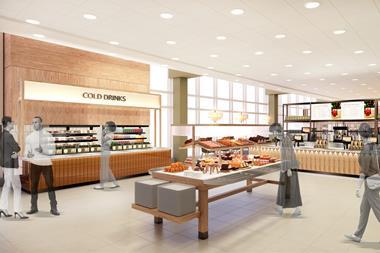With consumers keen to make their money stretch further, Lloyds examines how retailers can use data to adapt and create experiences that benefit both the customer and retailer alike.
Consumer spending is on the upswing. Data from the UK’s Office for National Statistics shows that in 2024 people spent more than in 2023, with clothing, footwear and household appliances seeing an increase.
According to our December 2024 Business Barometer findings, retail businesses are feeling more positive about their prospects too, with people seemingly more eager than ever to buy the things they want and make each pound stretch further.
Looking through the payment data lens
Access to data can offer key insights that retailers could use to boost payment acceptance and profits as they understand more of what people want to buy, and how they like to buy it.
As an example, anonymous consumer spending analysis across our debit and credit card transactions during Black Friday 2024 showed that Millennials spent the most in retail, with clothing having the highest value spend across all demographics, whilst retailers enjoyed 35% higher spend value, along with 15% higher spend volume and 17% higher average transaction value than an equivalent working week in October 2023.
Knowing the most popular categories for different age groups during peak sales events can therefore help retailers create targeted offers and incentives, that in turn lead to more sales and stronger revenues.
Payment trends on the rise
By monitoring changing trends, businesses can keep pace with the way people pay in the UK.
For example, according to data from UK Finance, almost four out of 10 (38%) of all payments in 2023 were contactless, and one third of UK adults were using mobile contactless payments at least once a month.
In January 2025, there was also news that the £100 contactless limit will be scrapped altogether, enabling people to use contactless in more locations and buy larger-value items than ever before.
“By monitoring changing trends, businesses can keep pace with the way people pay in the UK”
The industry has also seen a shift towards alternative payment methods like instalment-based buy now pay later (BNPL). As of 2025, two in five UK adults (42%) have used BNPL services at some point, and a further one in 10 Brits (9%) intend to use it in the future, according to a Finder.com survey.
Initially driven by Millennials and Gen Z, older demographics also appreciate the flexibility of being able to spread the cost for large-value retail items like furniture, high-end fashion and electric goods.
Loyalty schemes are booming in popularity too.
Whether it’s a discount on bulk or repeat purchases, cashback or exclusive in-app perks like instant bonus points, customers now seem more likely to give their money to a merchant with a loyalty programme than to one without, a Forrester report has shown.
A well-designed scheme can also function as a customer acquisition tool, providing valuable data from every transaction. Technology has made it easy to integrate them into mobile apps, enabling customers to collect and track rewards and receive instantly redeemable offers.
The ‘phygital’ revolution
Being able to touch and feel items like clothes or food, is something many people still crave.
As more workplaces call for people to physically return to work, in-store businesses look to offer the same fast and fluid online or mobile payment experience to in-store customers.
This ‘phygital’ evolution brings together physical stores and other in-person locations, with advanced digital payment technologies like mobile apps, digital wallets, QR codes and mobile point of sale (POS) devices that can take on-the-spot payments, instead of having customers wait in line at a checkout.
Customers can now go to a store to look at a product, check its availability and purchase it online to be delivered at home.
Why an integrated POS system is the future
By integrating POS devices with services like stock and inventory management, customer management and cash flow tools, retailers can offer experiences that deepen loyalty but also benefit from cost efficiencies when margins are tight, and adapt to future preferences and new payment methods as they emerge.
They can also help to protect customers’ data through functionality like two-factor authentication and PCI DSS data encryption.
Today’s retail businesses stand on the verge of unlocking a new world of business confidence and growth opportunities.
Lloyds and Lloyds Bank are trading names of Lloyds Bank plc. Registered Office: 25 Gresham Street, London EC2V 7HN. Registered in England and Wales no. 2065. Telephone: 0207 626 1500. Authorised by the Prudential Regulation Authority and regulated by the Financial Conduct Authority and the Prudential Regulation Authority under Registration Number 119278.























